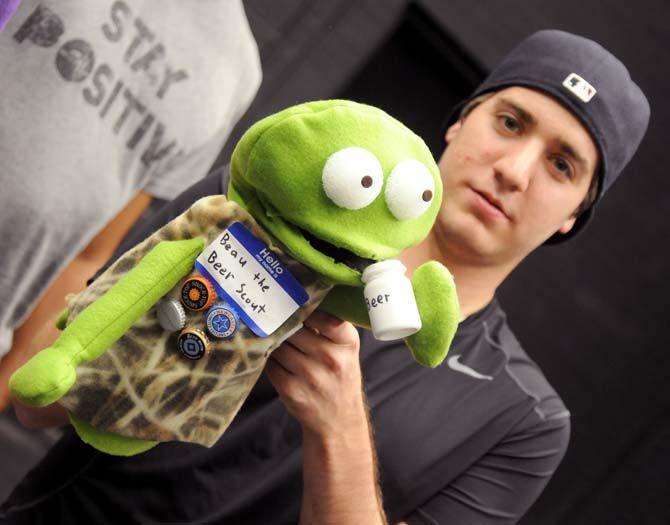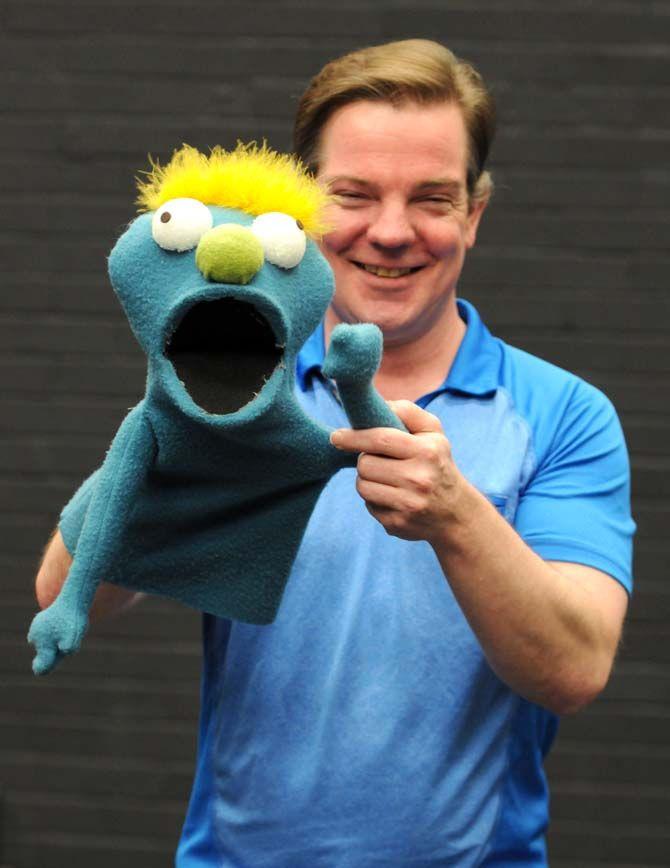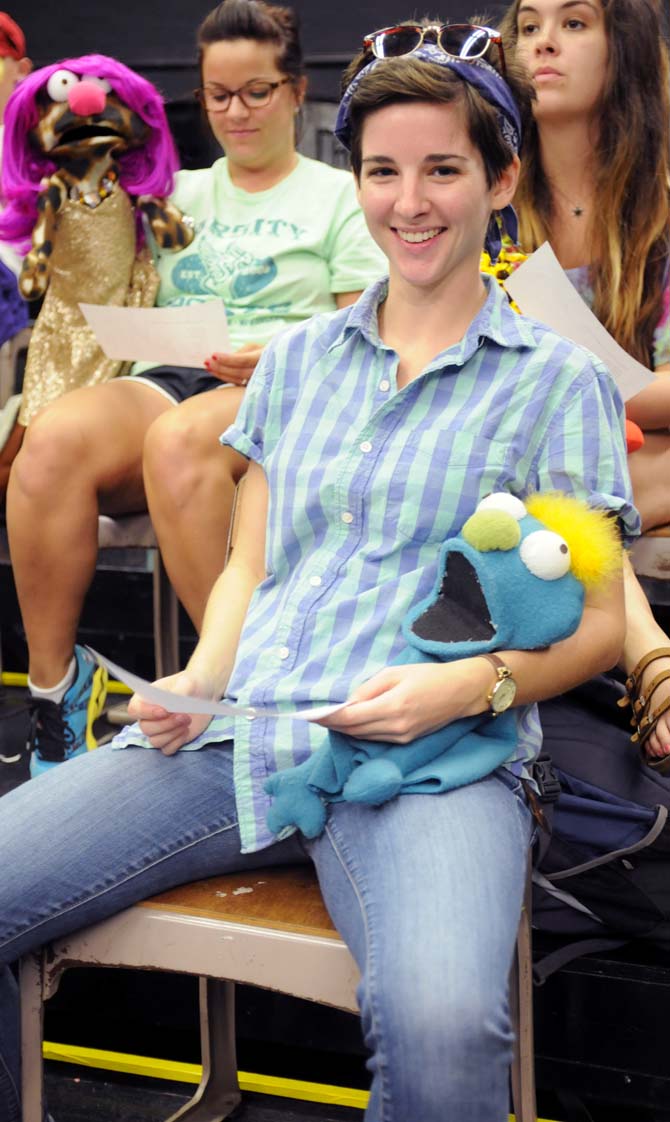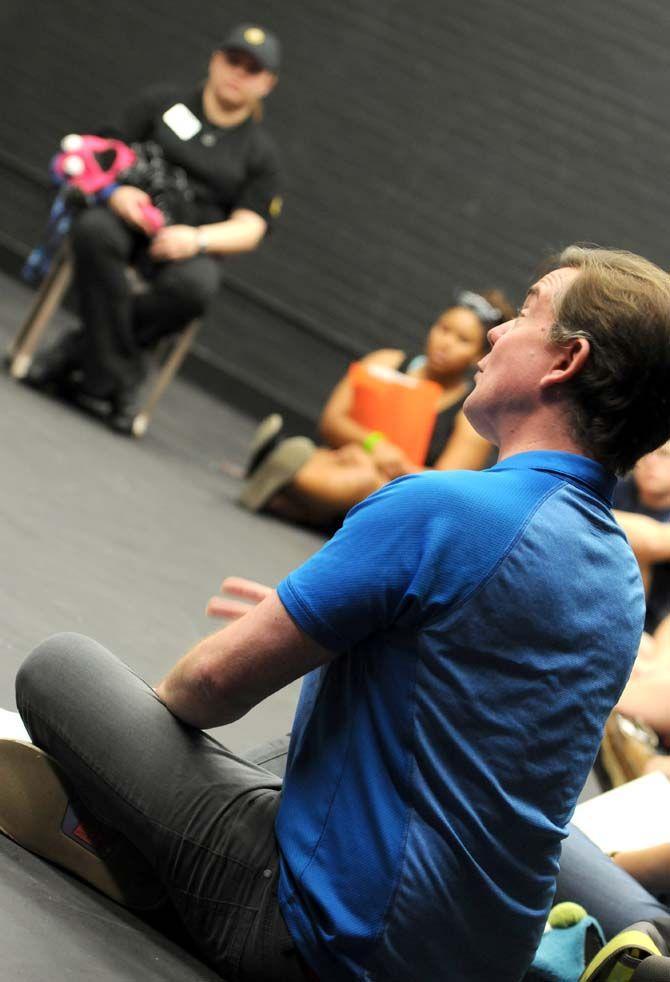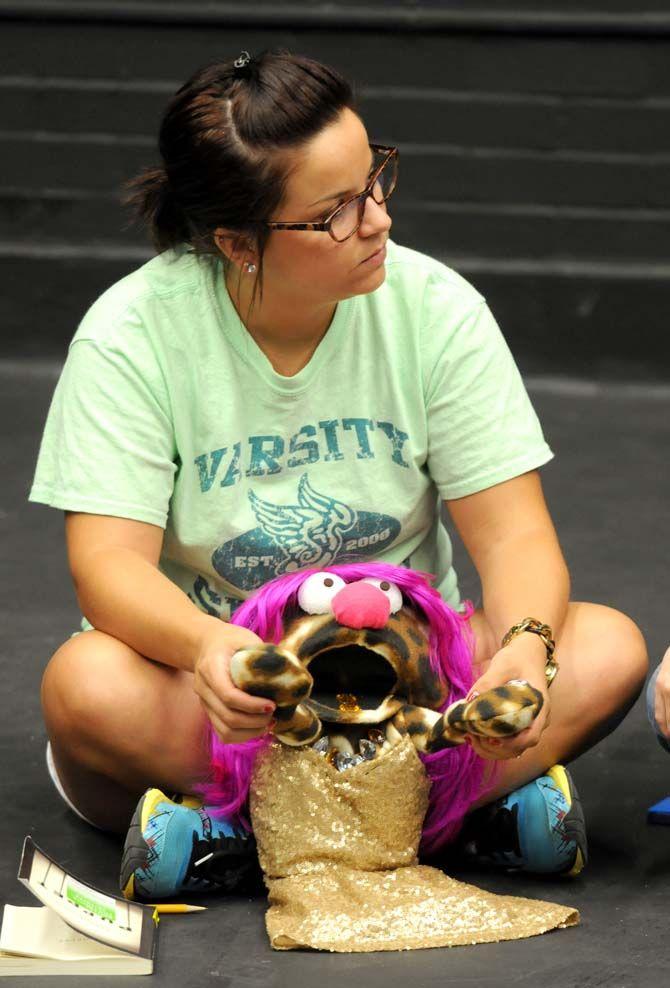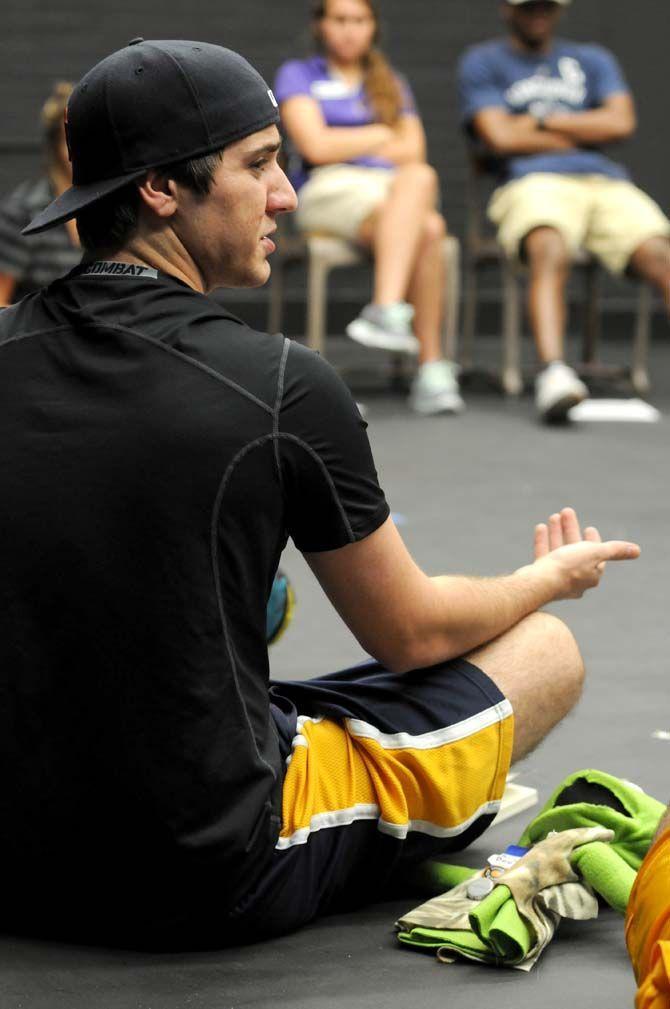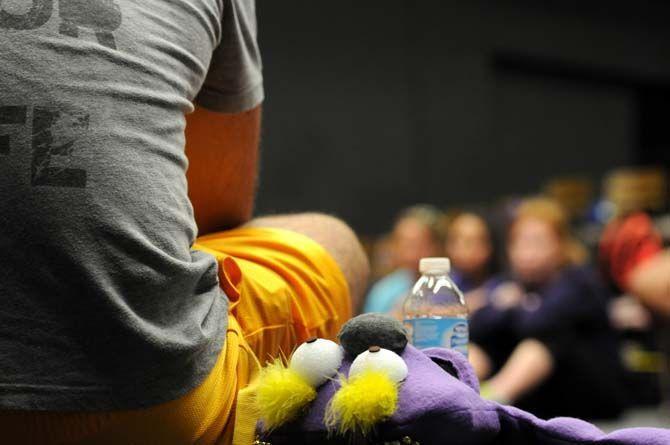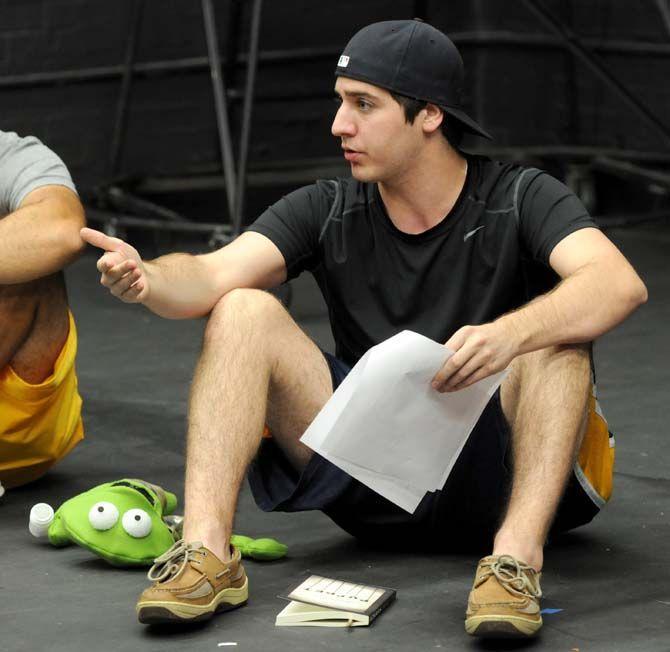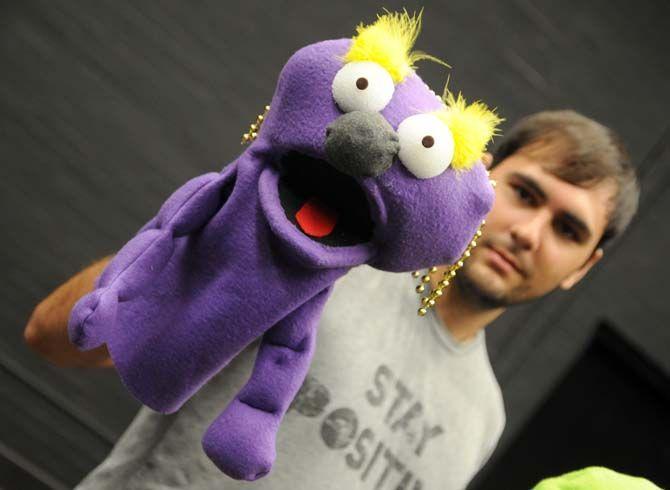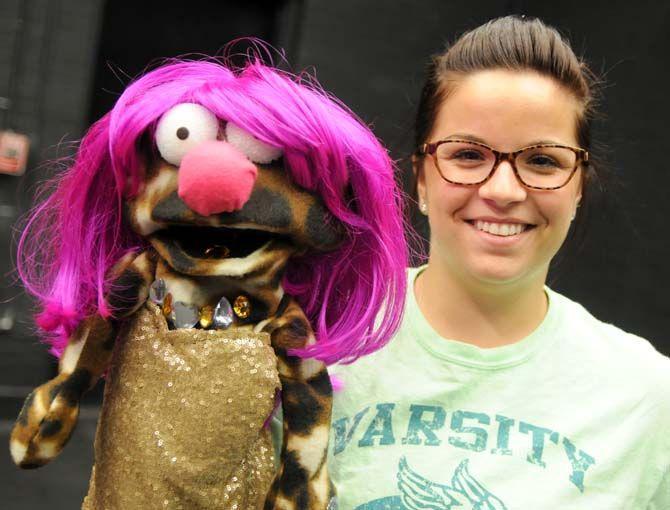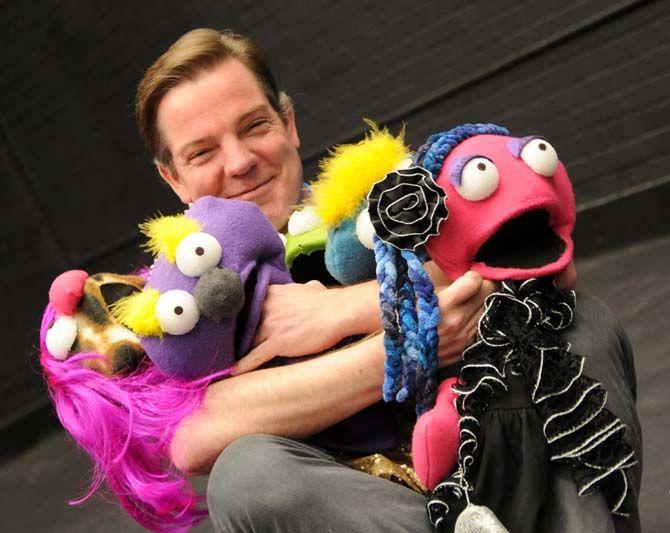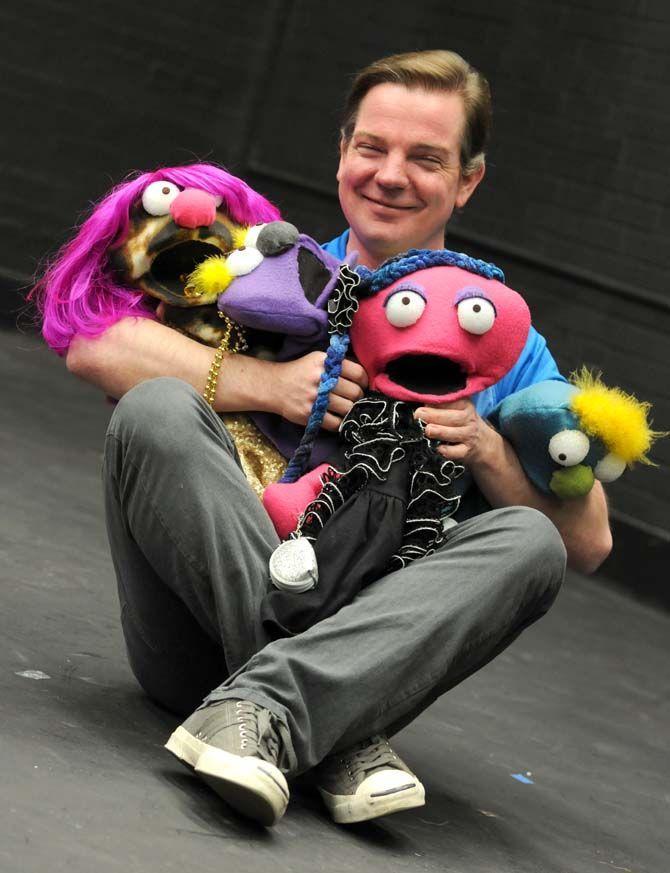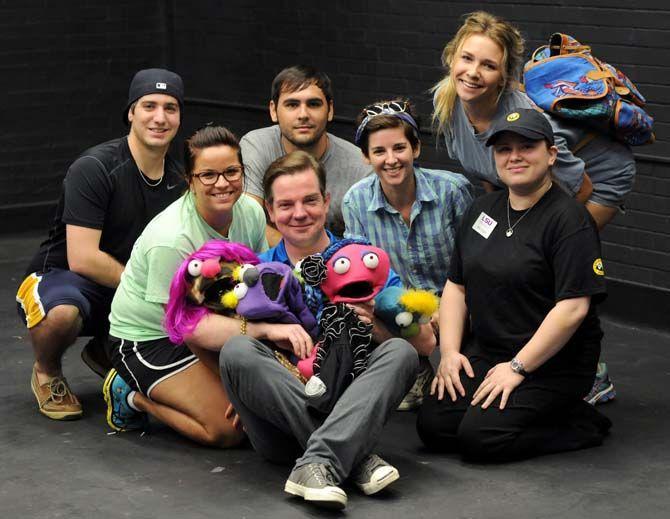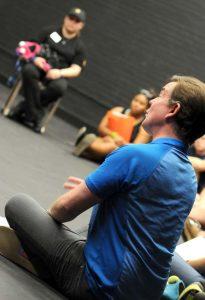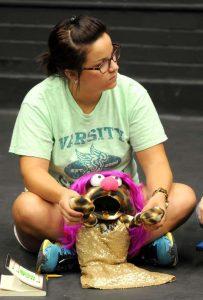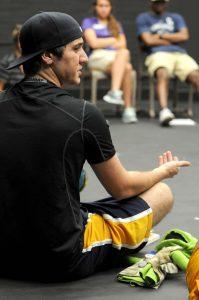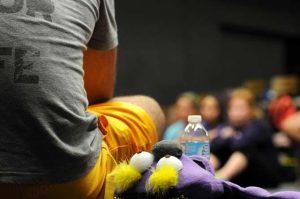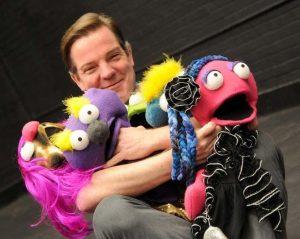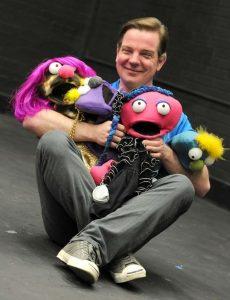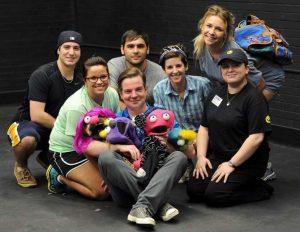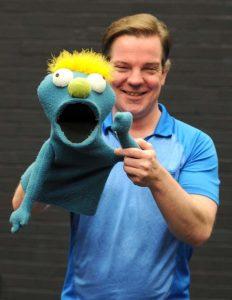Students are acting to fulfill their degree requirements via elective courses — even ones with no strings attached.
University professor John LeBret said such students are those enrolled in his Puppets and Props class, CMST 3900.
According to LeBret’s syllabus, the class is designed to teach communication theories and philosophies via puppet manipulation rather than how to perform with puppets in hand.
“Puppets are not the point,” LeBret said. “This class isn’t designed to turn students into puppeteers, which is why it is not part of the theatre department.”
LeBret said most students who take the course do so to fulfill their elective requirements. Some of his best students, he said, have been accounting majors. This year, however, two-thirds of his classes consist of communication studies students.
“Students in my class are encouraged to be ‘free to fail,’” LeBret said. “I want them to experiment and learn from something, because in college, we don’t do that enough.”
The first puppet LeBret assigned his students to experiment with this semester was an invisible dog leash. He asked them to manipulate the air in a way that would make others believe the student puppeteers were walking a dog, an assignment he called the “Invisible Dog Project.”
“With the Invisible Dog Project, I was trying to communicate the idea of surrealism to my students,” LeBret said. “I wanted to show them that they could easily take a mass-produced, ready-made puppet, manipulate it and use it to communicate, which is why I had them walk around the Quad pretending as though they were holding a leash and, essentially, walking their dogs.”
Communication studies senior Anna Marsden, a student in LeBret’s class, said she enjoyed the attention she got and received a positive reaction when practicing the dog walking exercise in the Quad.
“Smiles are the main reaction I got, and I absolutely ate it up,” Marsden said. “I never responded to the inquisitor as if the dog were imaginary because, well, what fun would that be?”
Marsden said she is enrolled in the class for pure pleasure — she has already fulfilled her degree requirements for graduation.
“Puppets have been found that are older than the earliest piece of written language,” Marsden said. “They are part of civilizations nationwide, and they have a much more significant purpose than most people give them credit for.”
LeBret, whose research focuses on puppetry, said he teaches the class for similar reasons: It gives him pleasure, his research requires it and it’s unlike any other facet of college learning.
“This class allows people to take the important things they learn in all those important classes and apply them to their specific interests,” LeBret said. “Ultimately, it serves a much greater purpose than most other classes students will take.”
Although the class touches on aspects of performance, puppet design and physical communication, Marsden said the class is no joke.
“The first few weeks is all giggles, but the class is rigorous and requires a lot — mentally and physically — from each student, so don’t take [the class] if you aren’t prepared to fully commit to it,” she said. “Do take [it] if you want to have the time of your life and have your mind blown, because that will happen again and again.”
LeBret said he recommends this class to students looking for an enhanced learning experience outside the average classroom.
“College is about expanding your mind and learning to do things you didn’t think would be something you’d ever want to do,” LeBret said. “This is one of those classes that helps you do such.”
LeBret said he appreciates offering a puppetry curriculum on campus, but with the way he teaches his puppetry class, puppetry should never be a major at the University.
“I play too much,” LeBret said, “But if you ask me, play is one of the most powerful ways to teach, and this class reminds students and myself of that.”
LeBret said the goal of his puppet class is not just to see his students pass. His hope is to show students outside of the communication studies program that communication can be entertaining and present itself in a variety of media.
“The real goal here is to make others smile because the world is such a bad place these days, and we do this with our puppets,” LeBret said.
LeBret said he still uses his puppets to make live, adult audiences smile as well.
“Puppetry seems to work its way into all of my performances, like in my piece ‘On a Snowy Evening,’ which is coming to LSU this December,” LeBret said. “What can I say? It satisfies my need for communicating.”
Students look to LSU puppet class to fulfill elective requirements
September 23, 2014
Interdisciplinary studies senior Jason Duhe’ poses with puppet “Beau the Beer Scout” that he made in Communication Studies 3900 in Black Box Theatre.



